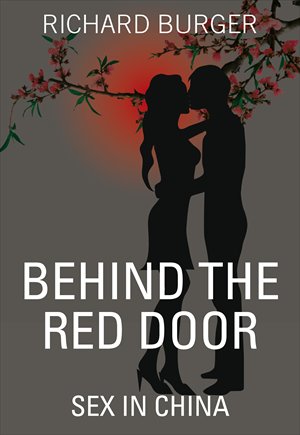Taboo texts


Sex has never really been an open topic for discussion in China. Confucian patriarchy as far back as the Eastern Zhou Dynasty (770-256BC) held that the less said about sex, the better. Taoist philosophy promoted sexual practices as a means to a longer life.
Yet few readers can claim to know much about the history of sex in China, because few attempts have been made at giving a historical account of the subject.
Behind the Red Door: Sex in China by Richard Burger stands as one of the only books to explore China's history of sex, as well as the modern concept of sex in Chinese culture.
Burger, an author living in Beijing and the blogger behind Peking Duck, describes the book as filling an important gap in the story of sex in China. It tackles the subject with a journalistic approach, with many anecdotes and interviews to illustrate its points. The central point of the book, he says, is to present China in the post-Mao era at a stage of sexual revolution.
The book was published late last year and has received praise for presenting a topic many consider overdue for in-depth examination. Why then has the topic of sex in China remained so quiet until now?
Sexpots of ancient China
In the book, Burger explores how ancient Chinese societies were more attuned to the pleasures of sex than is often acknowledged.
Some names in the lineage of Chinese erotic literature remain well known in China today despite their ban during the Cultural Revolution (1966-76).
Jin Ping Mei, a novel named after three concubines in the book, was written during the Ming Dynasty (1368-1644) by Chinese scholar Lanling Xiaoxiao Sheng.
Literary critics compare the notoriety of books like Jin Ping Mei and Qing-era (1644-1911) Rouputuan, about a young philanderer, to famously erotic English novels like Fanny Hill and Lady Chatterley's Lover.
Wang Xin, 25, a graduate student at the China Film Archive, says that reading Jin Ping Mei in high school taught him more about the lifestyles of the characters at the time the book is set, not about sex.
Wang says he believes learning about sex from any book requires "something more scientific and formal than what comes from the imagination of an author."
However, he says the value of Jin Ping Mei for Chinese readers is "like that of reading (French author Alexandre) Dumas. There's a lot to draw on from it."
Too hot for translation
Burger says his book has not been translated into Chinese and that it's unlikely to be published in China due to censorship. Burger attributes this to the book's content, which is "graphic and at times critical of the government's phobias about sex."
He believes his work could make an impact on Chinese readers were it to be translated. The book's content could be "hugely valuable for broadening (Chinese readers') knowledge of an aspect of Chinese culture that they may never hear about."
Peng Xiaohui, secretary general of the World Association of Chinese Sexologists and professor at Central China Normal University in Wuhan, Hubei Province, says, "Of Chinese, 99 percent are illiterate in sex knowledge or history."
Peng says the main challenge for sex-themed books here is that China has hardly any systematic or scientific sex education in its current curriculum.
"China is too focused on economic development and maintaining social stability while sex education gets worse and worse," Peng says.
Peng believes that "deep down, the masses welcome literature about sex." The problem, he says, lies in "people's hypocrisy, where in private, perhaps with a friend, a person might be open, but then wear a mask when confronted by the mob."
Composing textbooks for university students has gotten Peng into trouble with censors in the past because of his revealing, vivid descriptions about sex positions and techniques.
"Large parts of my writing have been cut out before because the censorship board at the university believed the content was inappropriate, even though I was only writing a textbook for sexology," he says.
The next generation
While Burger does not share the view that young Chinese people are "illiterate" in sex, he says, "Most young Chinese people just don't have a firm grasp of the country's sexual history."
Burger says that despite lacking both a formal and historical sex education, young Chinese people are aware of how radically China's attitudes toward sex have changed in just 20 years.
Burger believes there is more work to be done by authors in order to inform readers about the development of sex and sexuality in China. He holds that current changes in Chinese culture to do with sex need to be communicated more urgently than a look back through history.
"I'd like to see a book that deals intensely with the Internet's role in sex in China," he says. "This is something Behind the Red Door certainly touched upon, but there's so much more material that has become available within the past year."
Burger says the role of mobile technology is entirely changing dating in China, as with the mobile app Momo, which can search for men and women in the user's immediate vicinity.
"There is still so much to draw on, and any book on the subject will be incomplete," he says, pointing out a recent story of a masturbation contest held in Shenzhen, Guangdong Province, on December 1.
Peng says that though changes can be seen in modern China, basic facts about sex remain suppressed.
"Most of the knowledge Chinese people have about sex comes from porn movies," Peng says.
While pornography remains easily accessible in China despite an official ban, Peng says that he and those in his profession continue to suffer since "real science still can't be published."
"It's little wonder Chinese people turn to pseudoscience to explore sex. There is simply no other way to learn," he says.